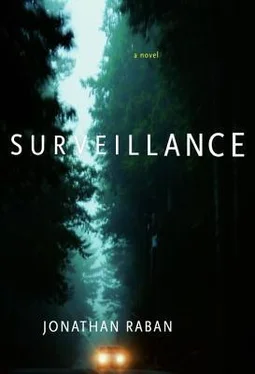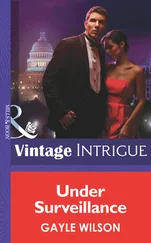Strange to think that only days before he’d looked on the Acropolis with love and pride. Now he wanted it gone — obliterated, wiped off the face of the city. His sole slow-dawning satisfaction lay in the thought of a giant wrecking ball smashing into the building, Pow! and Pow! again, reducing it to a heap of splinters and brick dust.
He’d show those fuckers — all of them, and especially the bitch in #701. They could live in the street along with the rest of the scumbags, making fires in buckets, digging in Dumpsters, begging for quarters, crying, fighting, sucking on their stupid bottles. The street was where garbage in human form belonged. They could scavenge in the alley beside the smoking red-dirt mountain that would be all that was left of the Acropolis.
Where the building had stood, he’d gouge a massive underground garage, multistory, deep as he could go, then lease the space above to some big commercial interest — supermarket, maybe, or bank. Let them build. He wanted only to destroy, right down to the infected foundations of the apartment block.
Pow! He saw the wrecking ball arc slowly through the air, the collapsing walls, the explosion into dust. For the first time since his excruciating humiliation, Charles O caught a distant glimmer of what it might be like to be himself again.
LUCY HAD GROWN to anticipate with pleasure Minna’s regular graces before meals. The meals deserved them, and in her mouth the words “for health and food, for love and friends” sounded just right.
As soon as they sat down, Alida began asking Augie about his book. She was already ninety pages into it, and before dinner had told Lucy that it was “Good— really good.”
“And you were really there? Everything really happened to you ?”
“Oh, yes, but of course it was all a long, long time ago.”
“If even some of that stuff happened to me, I would’ve turned out totally freaked and weird.”
“You don’t think I’m weird? I sure am — at least, if you ask some people. Your mother, for instance. She thinks I’m a fabulist and an exaggerator, that I make it up as I go along.”
Aghast, reddening, Lucy said, “Augie! That’s not true!”
He ignored her. Chuckling to Alida, he said, “You only have to see her face when I’m talking about the Islamist threat. She thinks I’m some nutty right-wing hyena. Oh, yes you do! Don’t deny it! Alida, can you pass your mom the wine? She spends far too much of her time reading The New York Times —either that, or I really am the madman she believes me to be.” To Lucy he said, “Don’t think I haven’t considered the possibility that my views may have been warped by my crazy childhood — yeah, it’s possible, but of course I hold them to be entirely rational.”
“To be honest,” she said, “I sort of envy you your views. The trouble with me is I’m an agnostic about everything.”
“I’m a believer. I’ve gotten to the age when it’s smart to buy into Pascal’s wager, but it’s not God I believe in. You know what I believe in.”
They ate in silence for a minute, then Augie said, “What Montaigne said about it? ‘The old believe everything, the middle-aged suspect everything, and the young know everything’—though of course that old geezer never got the opportunity to meet Alida, which was his loss.”
TO BEAT THE TRAFFIC, they set off late on Sunday morning after a light brunch, Alida doubly preoccupied in the passenger seat with her iPod and Augie’s book. It was like driving alone, and for once Lucy was content to be left in solitude with her thoughts, which began to tumble from her mind as soon as they’d made the right turn at the end of Sunlight Beach Road.
Magically, the piece she’d thought unwritable was unfolding itself inside her head. Woe to those who conclude! as Augie had said. Which was what was wrong with most feature journalism, her own included. Profilists were no better than the hacks who went on a week’s freebie in some five-star hotel in Venice, then came back to regale a credulous world with “their” Italy. The conceit of it! The idea that you could “capture” a city, a country, or a man in twenty-odd paragraphs; you might as well say you’d captured Seattle with a digital photo of the Space Needle, or, as Augie tiresomely insisted on calling it, the Space Noodle. The judicious tone, the summing up, the obituary-like placing of a terminal period at the end of your subject’s “life”—all flummery and hokum, the smoke-and-mirrors of the journalist’s trade. When she looked back on it, Lucy realized she’d tried to bury everyone she’d ever written about — Gates, Cobain, Jeff Bezos, everybody. Each piece had aimed at the finality of a tombstone. Here lies the body of …in five thousand words.
Well, not this piece. She imagined it rather as she expected a postmodern New York loft might look — all the beams and pipes of its construction, its artifice, would be not only exposed but highlighted. They, as much as August Vanags, would be its subject. It would be full of tourist snapshots of Augie on the patio, on the beach, lecturing a dinner table, up in his study quoting Montaigne and E. B. White, or out kayaking with Alida, who had to be in the picture, too. Augie with Minna, Augie trying to learn his Schubert sonata, Augie the European, Augie the American, Augie the neocon, Augie the nature-lover…But they would be just that — snapshots, nothing more, disjointed one from another like the capricious jumble of images that every camera-toting traveler brings back from a trip, some more in focus than others. They wouldn’t add up, wouldn’t form a narrative, because the narrative of this piece would lie elsewhere. The GQ guy had spoken of a “unicorn hunt.” She’d catch a multitude of glimpses of the elusive unicorn, but the piece would be about the comic intricacies of the chase, and its ultimate futility.
They were on the ferry now, but Lucy didn’t even remember parking on board, and there was no temptation to leave the car for the passenger lounge. Alida was as lost in her own thoughts as she was in hers.
She’d write about the journalist on the job: the phone call from the editor — the pen-in-hand race through the book — the rushed and skimpy library work — the routine Googling — the meeting with the subject — the leaps to judgment on the subject’s “character”—the amateur espionage — the rapid shifts of mood and mind — the gathering suspicions — the trespassing back and forth across the border between reporting and friendship — all that and more. Lucy saw, but would not write, herself in the third person, as a harassed, untidy, inept figure, floundering out of her depth yet always puffed up by her habitual old illusion that there must be something to be gotten to the bottom of.
There’d be no bottom to this piece, no key to the “real” Augie, no problems solved, no pseudo-urbane assembly of Augie in legible and transparent form on the page. Rather, readers would find themselves in the same position as the writer — perplexed, fascinated, engaged, and sometimes repelled by August Vanags — just as aware of their own shortcomings as she was of hers, aware that facets and surfaces were just facets and surfaces, and that, like the writer, they must not conclude.
For these inconclusive times, it would be a topically inconclusive piece, and the most ambitious thing Lucy had ever tried to write. Augie wouldn’t be hurt by it; she’d make him laugh at himself when he wasn’t laughing at her. The visits and kayaking lessons would continue — maybe even through the writing of the piece — and their growing friendship would not be damaged. Yet she’d tell the truth. Most of all, she’d tell the truth about journalism, which was that ninety percent of the time there was no real truth to tell.
Читать дальше












